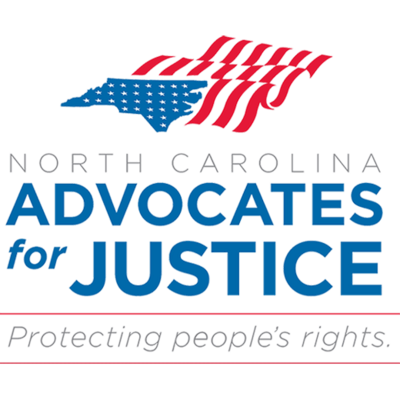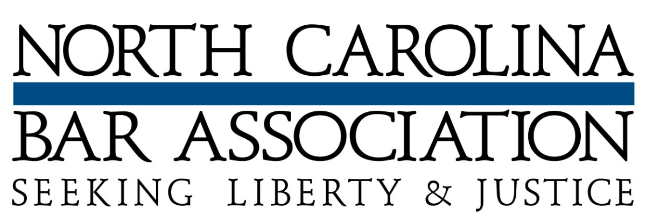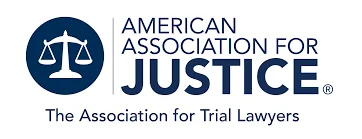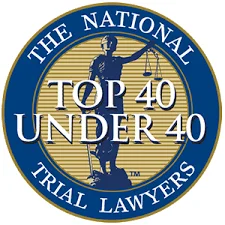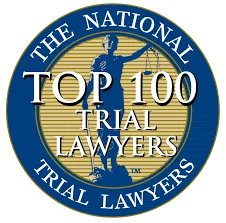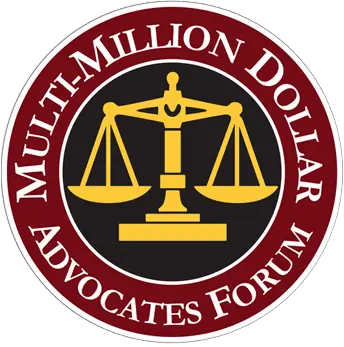For years, organizations have been running campaigns to raise awareness of the dangers of drunk driving. Yet, people continue to get into their cars after having too much to drink. Unwilling to take a uber, use public transportation or call a friend to get picked up, they get into their vehicle and put lives at risk.
Drinking and driving is intolerable, and drivers that take the wheel while intoxicated deserve to face the full arm of the law. If you were the victim of a drunk driving accident in the state of North Carolina, you deserve compensation. In most cases, victims obtain the compensation they deserve through the other driver’s insurance company.
Insurance companies are notorious for trying to settle cases for as little as they possibly can. Fortunately, the car accident attorneys at Horton & Mendez Injury Attorneys are here to help. As former insurance defense lawyers, we know the other side’s playbook and leverage that knowledge to help our clients get as much compensation as possible. Call us today to schedule your free case evaluation.
North Carolina Drinking and Driving Statistics
Drinking and driving is all too common. According to the North Carolina Division of Motor Vehicles Crash Report for 2017, there were 11,342 drunk driving crashes in the state that year. 368 people were killed and 7922 were injured. This number was actually down from the previous year.
Drunk driving accounts for 26.4% of all traffic fatalities. Lane departure is the most common type of drunk driving accident accounting for 53.2% of all fatal accidents. Drunk driving spikes during holiday weekends and 50% of fatalities occur during Memorial Day weekend.
What are North Carolina’s Drinking and Driving Laws?
In North Carolina, it is illegal to drive if your blood alcohol content is .08 or above. If you are driving a commercial vehicle, you will be guilty of drunk driving if your BAC is .04 or above.
The amount a person must drink to reach a .08 BAC varies from person to person and is largely dependent on body weight. There is zero tolerance for drivers under 21 that drink and drive. It is considered illegal for people of that age to drive with any amount of alcohol in their system.
People found guilty of drinking and driving may be subject to having their license revoked and they may incur fines and jail time. If you are arrested for drunk driving while your license is revoked, the authorities can seize your vehicle and it can be sold by the local school board.
North Carolina updated its laws in 2015 and habitual drinking and driving is now considered a felony. If you have three DUI arrests within a ten-year period, you may be facing a minimum of one year of jail time.
Drivers who get behind the wheel drunk may owe the victim compensation that includes punitive damages which are awarded if the defendant’s behavior in causing the accident is considered excessively reckless. They are put in place to ensure the at-fault party does not engage in similar behavior in the future.
Implied Consent to BAC Tests
North Carolina is an implied consent state. That means that anyone who gets behind the wheel of a vehicle has already consented to a test of their blood alcohol level if a police officer has reason to believe they are under the influence.
However, implied consent does not necessarily mean all drivers should submit to your test. A lawyer will provide more information on this topic.
Can Charges Be Reduced to Wet Reckless?
Wet reckless is a term for reducing a DWI to a reckless driving charge with an additional note that alcohol was involved in the accident. North Carolina no longer accepts plea bargains for wet reckless.
What are the DWI Penalties?
DWI penalties include the following:
Vehicle Impound
Drivers charged with their first DWI will have their vehicle impounded for 10 days. A fine is charged to have the vehicle released.
Driving privileges will be revoked for at least 30 days before the pre-trial hearing. However, the driver’s attorney can petition for limited driving privileges as soon as 10 days after the charge.
Sentencing Levels
North Carolina has six sentencing levels for DWIs. Level 5 is the least severe while Level 1 Aggravated is the most severe. The level is determined by a judge who decides, beyond a reasonable doubt, whether any grossly aggravating, aggravating, or mitigating factors are involved.
Grossly aggravating factors include the following:
- A prior DWI conviction within the past 7 years
- A DWI conviction while under suspension for another DWI
- Serious injury to another person
- Driving while intoxicated with a minor in the vehicle.
One grossly aggravating factor calls for a Level 2 Sentence. Two or more grossly aggravating factors call for a Level 1.
Aggravating factors are as follows:
- A BAC of .15% of more
- Reckless driving
- Driving while your license was revoked
- Prior DWI convictions
- Speeding to get away from an officer
- Driving 30 mph or more over the speed limit
- Illegally passing a school bus
Here are the mitigating factors:
- Slight impairment when no BAC test was available
- A good driving record
- A BAC of .09% or below
- Lawful operation of the vehicle other than DWI when charged
- Impairment caused by a prescribed dose of medication
- Voluntary submission for a mental health assessment
If aggravating factors outweigh mitigating factors, a Level 3 sentence will be imposed.
If there are no aggravating or mitigating factors or if the aggravating and mitigating factors balance each other, a Level 4 sentence will be imposed.
If the mitigating factors outweigh the aggravating factors a Level 5 sentence will be imposed.
What Has North Carolina Been Doing to Reduce Drinking and Driving Incidents?
North Carolina has been increasing its efforts to reduce the recurrence of drinking and driving accidents. Here are some of the steps that are being taken:
Sobriety Checkpoints
Sobriety checkpoints are being set up in cities around the state. They are often located in high-traffic areas near nightclubs, and you can expect to see a lot of them during holiday weekends.
Officers at these checkpoints can stop drivers at random. If they have reason to believe a driver has been drinking, they may order them to take a field sobriety test of a breathalyzer. If the driver refuses, officers can confiscate their license for 30 days and for as long as a year after the hearing…even if they’re not convicted.
Ignition interlock devices are installed in vehicles of drivers who were convicted of a DWI, and they are required for first offenses if the blood alcohol level was .15 or higher. They are also required for drivers with repeat convictions. The more convictions you have, the longer you must keep the IID installed.
Anti-drunk driving advocates are currently pushing legislature to make IIDs necessary for all drivers with DWIs regardless of their BAC at the time of the offense.
North Carolina’s Booze it and Lose It campaign has been recognized as one of the most successful anti-drunk driving campaigns in the nation. It has increased awareness of the dangers of drunk driving and made for increased arrests and more sobriety checkpoints that discourage people from drunk driving.
The campaign was successful in conducting 3,943 sobriety checkpoints and charging 1,373 people with DWIs over the July 4, 2018 weekend alone.
What are the Most Common Types of DWI Accidents?
Drinking and driving is extremely dangerous and can cause severe accidents including the following:
- Lane Departures: Lane departures are the most common types of drinking and driving accidents. Drunk drivers are known for weaving in and out of their lanes due to impaired judgment. This sort of driving behavior is something other drivers can’t predict, and it is difficult for them to drive defensively in these circumstances.
- Head-on Collisions: Head-on collisions are one of the most fatal types of accidents. Fortunately, they don’t happen that often. When they do occur, it is usually because a drunk driver attempted to enter a one-way street or freeway from the wrong direction.
- Rear-End Collisions: When drivers are intoxicated, it’s difficult for them to determine whether they have enough of a buffer between themselves and the car in front of them. They also have slower reflexes so if the car in front of them stops suddenly, a rear-end accident is likely to occur.
- Pedestrian Accidents: An intoxicated driver may not see a pedestrian on the street, especially at night. If an accident occurs, pedestrians can get severely injured.
Who is Responsible for a Drinking and Driving Accident?
A driver is always responsible for his or her decision to take the wheel intoxicated, but other parties may be to blame as well.
For example, if the driver was coming from a bar that overserved them or gave alcohol to a minor, they may be responsible for damages. If the driver got drunk at a party, the host may owe the victim compensation. If the party was hosted by the driver’s employer, the company may be liable.
Multiple insurance companies may also be responsible for the accident. For example, if the driver was in a borrowed vehicle, the owner of that vehicle would need to use their insurance policy to cover damages. The driver’s insurance would be used as well.
If the driver’s insurance is not enough to cover the damages, the plaintiff may consider accessing UIM (Uninsured Motorist) insurance to get additional cash benefits. In North Carolina, UIM is stackable. This means that you can collect benefits from multiple insurance companies Under North Carolina Law you can also receive punitive damages. Unlike other forms of damages, punitive damages are targeted towards punishing a defendant and also deterring them from committing a similar act down the line. For this same reason, punitive damages tend to have a social effect.
What to Do After a Drunk Driving Accident Occurs
There are steps you can take immediately after a drinking and driving accident occurs that will help you build a strong case. These are as follows:
- Take Pictures: If you are feeling well enough, use your phone to take pictures at the scene of the crime. Be sure to document all angles as well as any injuries and damages.
- Get the Contact Information of Witnesses: If any witnesses saw the accident occur, be sure to get their contact information. They may be able to testify on your behalf.
- Get Medical Help: You may not think your injuries are that severe, but it’s always advisable to get medical help after an accident occurs. If you hold off on getting seen by a provider, at-fault parties will try to claim that your injuries were not tied to the accident. If you get care right away, the doctor will create a record that serves as evidence that your injuries were caused by the collision.
- Call the Police: The police will create a report that will serve as a strong piece of evidence in your case.
- Get the Information of Involved Parties: Be sure to get the insurance information and license plate numbers of all other drivers involved in the accident. Also, make sure to take note of the at-fault driver’s behavior. It is important to look for signs of alcohol, smell, red eyes, an unsteady gait, slurring words, etc. In some cases, it might also be beneficial to take a video of the at-fault driver if you see them acting drunk.
What Kind of Compensation Can I Receive in a DWI Claim?
If you are the victim of a DWI, the compensation you can collect may vary according to your personal situation and the extent of your injuries and damages. Here is what you may be looking at:
- Economic Damages: Economic damages include immediate and future medical expenses, loss of wages, and loss of earning potential.
- Noneconomic Damages: DWI accident injuries can result in emotional and physical pain and suffering. It is difficult to put a monetary value on these non-tangible elements, but your lawyer will use their years of experience to come up with a fair amount.
- Punitive Damages: These damages are designed to deter the act which caused an injury from occurring again.
Why Horton & Mendez Injury Attorneys is the Best Choice for Your Wilmington, North Carolina DWI Claim
A DWI is not something to take lightly. Drivers may be facing felony charges. It’s essential to have a reliable lawyer on your side.
Horton & Mendez Injury Attorneys are a team of Wilmington, North Carolina attorneys with years of experience representing clients injured by drunk drivers. We are known for treating the people we represent with a high level of respect. Our winning results speak for themselves. In addition, because we know how the other side operates, we can ensure that our clients get the full and fair value of their claims.
When someone decides to drink and drive, they put several lives at stake. Don’t let at-fault drivers get away with it. Call Horton & Mendez Injury Attorneys to schedule a free consultation. We will see to it that you get the compensation you deserve.









